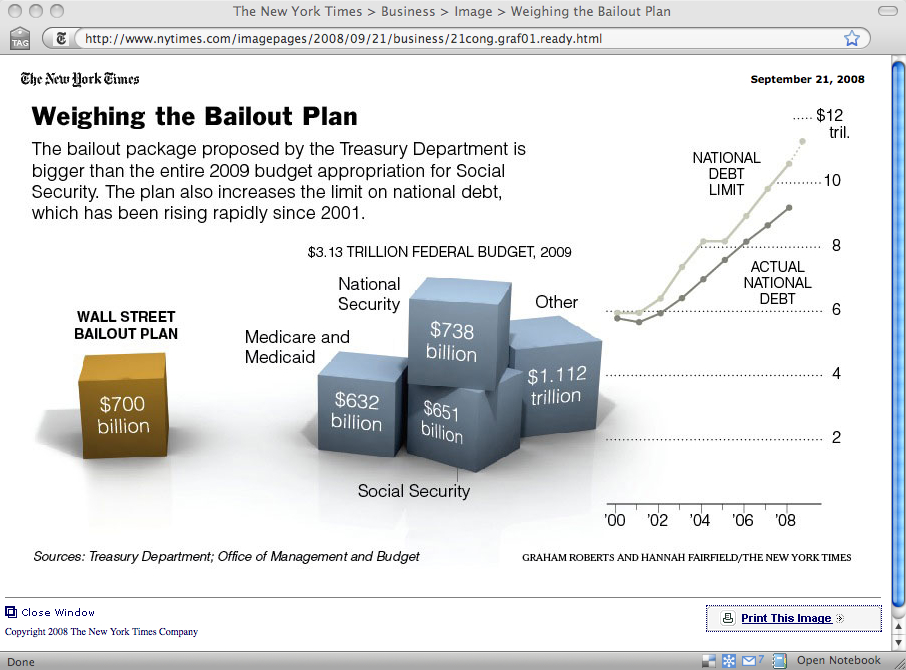Bailing Out

Much will be written about the unprecedented steps taken by the Federal government to halt the growing fear in the world financial market. The current emphasis is on the big and the small; the "moral hazard" and the compromises that may be required to make sure the "average person" feels they get something out of all of this.
One set of facts is quite evident and when examined in light of demographics should cause concern:
- Our economy is smaller
- Many employers will have to tighten their budgets even more
- Most of us will have less money to spend
- State governments will have less revenue
- Poverty will increase
- We are getting older, fatter, sicker, and, from recent history, not much wiser
Since 2000, our national debt has skyrocketed past 9 trillion on its way to 12 trillion by 2010.
Of our 3.13 trillion federal budget (2009) expenditures include:
- $632 b - Medicare and Medicaid
- $651 b - Social Security
- $738 b - National Security
- $1.1 t - Other
- $700 b - Wall Street bail-out (conservative)
Here's the sad thing - we are the sole owners of our health care - not foreign countries, banks, or others (outside of the national debt, bonds, and other capital instruments). Bank bailouts are not designed primarily to rescue the individual who makes the payments, they are designed to rescue the individual by ensuring there is a system that will make sure that we - and our children - can borrow what we need in the future to own a home. One wonders, even in this time of crisis, why is it easier to get a home loan than to be assured affordable health care?
Senator Frist's quote is as follows:
“You can’t really cost out the impact of the McCain proposal. Basically you’re blowing up the entire system and putting people into individual market. But the cost impact of the Obama plan, 452 billion dollars per year assuming it is implemented immediately…the point is it costs a lot of money and the American people, where 700 million dollars was lost yesterday, are not going to be in the mood for a large, expansive program.”
I am not sure I agree with his sense of the public sentiment. His own extreme price tag - in the context of financial industry bail-outs, wars, and other exigencies, seems worth discussion given the enormous adverse impact a failing health care system has on the individual.
Nina Cordona of National Public Radio covered Dr. Frist's remarks and stated that Dr. Frist "anticipates the formation of a panel to study Medicare, no matter who wins the election."
Could be an important task.

0 Comments:
Post a Comment
<< Home